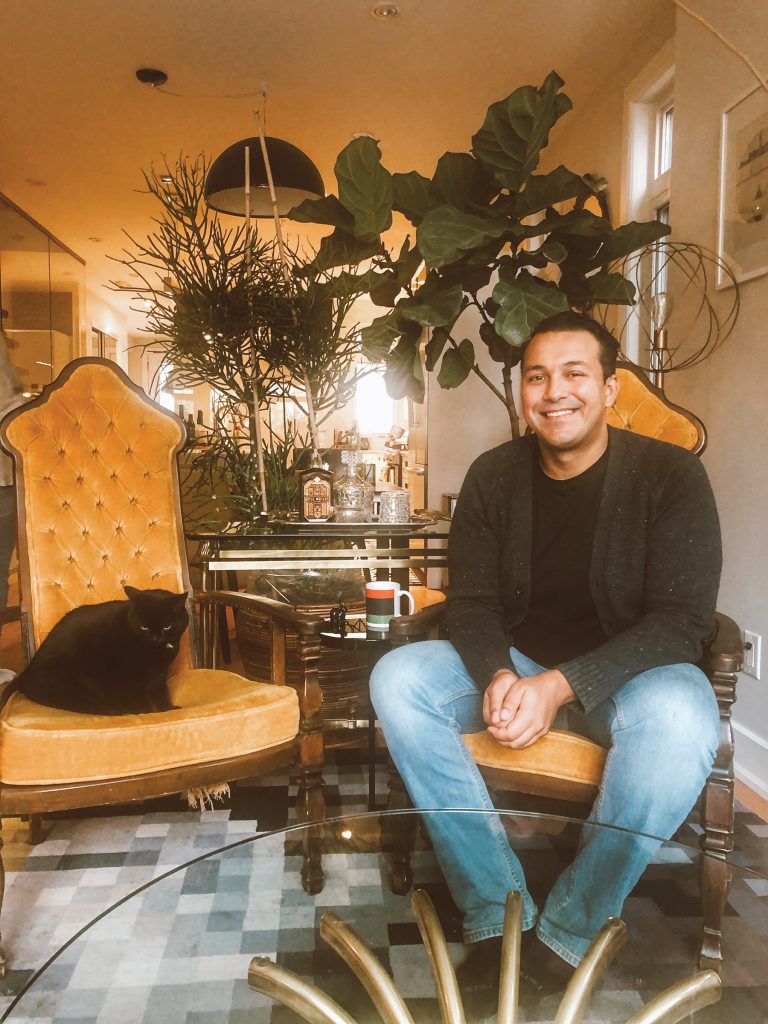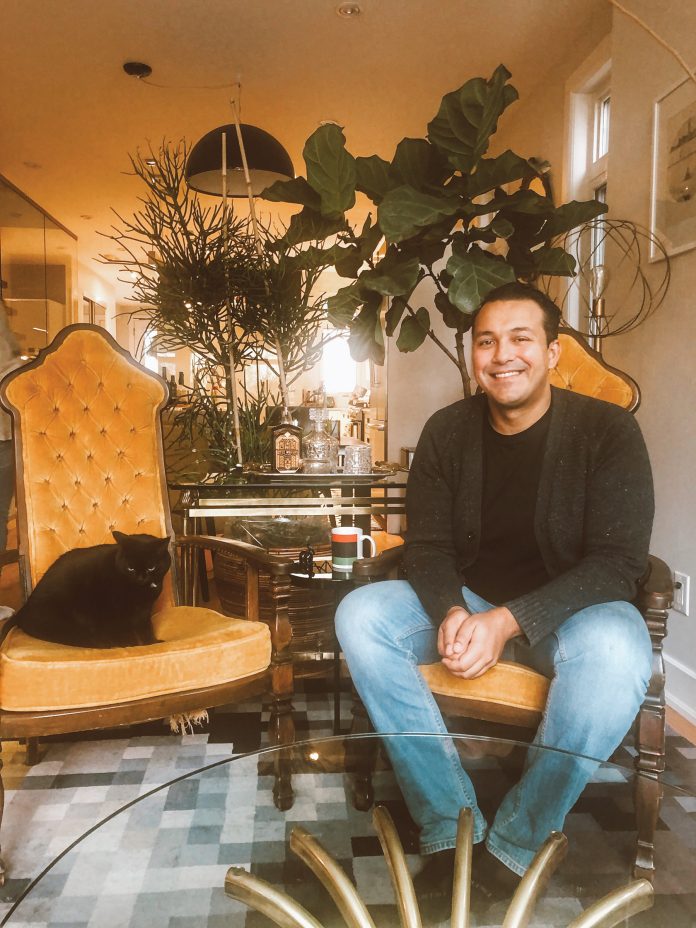
“I think both of us really like that traditional main street that Westboro has — the chance to live in a home where almost everything you need is walkable was really big, and I’m a big user of public transit too. All those things were amazing and, on top of that, we were blown away that we could live in the middle of a city but have a river beach, and a really nice one, so close. This seemed to be the neighbourhood that had it all for us.
We came from Victoria. I think both of us found it hard to live on an island because you always have to plan if you want off. I’m from London, Ontario and Melissa [my wife] is from Edmonton. We met when I was first posted to Edmonton and we’ve been married almost eight years. I’m a full-time member of the military, but I have a weird job because I was one of their primary care family doctors for six years. I joined when I was in med school. Through them, I was given the option to do another residency in anesthesiology and that’s really what brought us here. I was accepted to the residency program in Ottawa. Now, I’m a full-time military anesthesiologist — I finished just over a year ago. So now, if there’s any need for anesthesiologists to go overseas, I’ll be part of the group of people they look to. Otherwise, we work here in Ottawa, in the hospitals, to augment the hospitals and keep practicing our craft.
I think [the military] has made my practice of medicine super interesting. I’ve had the chance to do things that if I had not joined, then I would have never done, including spending time in the Northwest Territories, responding to ships in distress at sea (that happened when I was in Victoria), [and] flying to interesting corners of the world. It’s been a really interesting practice of medicine. It’s an organization that I’m quite proud to be a part of, although I know I’m just one tiny corner of the healthcare side of things, so it’s also quite a privilege to take care of people who are doing the other stuff.
I think Remembrance Day is, and should always stay, a solemn occurrence where we remember the people who are no longer with us and the things that they had to sacrifice in order to build the Canada that we have today. It makes me very happy when I turn out to the ceremony at the main war memorial to see how many people come. And, inevitably, it’s very cold out, and yet so many people think it’s important to come and brave the cold and show that they do remember.
I don’t think it’s a stretch at all to say that so much of the medicine that we have learned — how to do well for everybody in the community at large — was learned over many decades, unfortunately, but also truthfully, during war times. Considering they often come with a grave sacrifice of life or limb, it may [not be] surprising that’s where techniques are often developed that are applicable everywhere else as well. So, with that legacy, it’s cool to feel that you’re a little bit of a part of people on the vanguard of medicine and care in some ways.”
Story and photo collected by Hollie Grace James.
